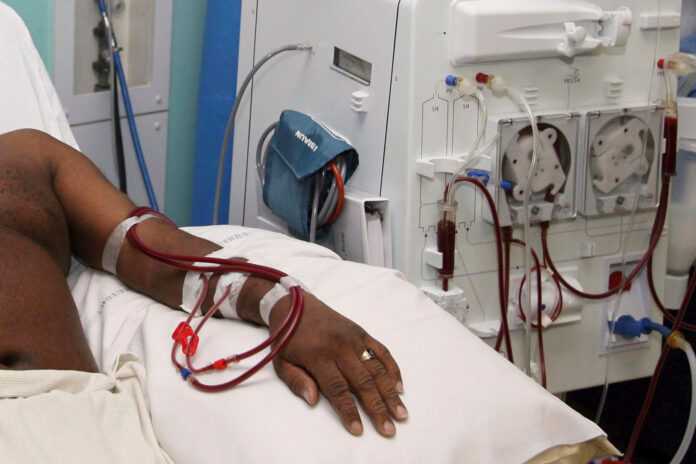Public Relations Officer of the Cape Coast Teaching Hospital (CCTH) has emphasized the need for urgent attention to be paid to the significant rise in kidney-related diseases recorded at the facility.
Mr Fredrick Nyankah revealed that last year, CCTH recorded an average of eight cases per month. “In March alone, we had 18 new cases,” Mr Yankah added.
He expressed concern that despite these escalating numbers, public awareness and education about kidney health remain insufficient. The PRO said this in an interview with Johnnie Hughes on 3FM Sunrise Morning Show on March 13.
Highlighting the inadequate resources available, Mr Nyankah disclosed that Cape Coast Teaching Hospital currently operates with only four dialysis machines.
“In Cape Coast, I will say we have 4 and half. The half means that there is a machine that needs regular attention by the operator or the nurse available. Ideally per the space that we have we should have about 14 to 15. We still have some machines that are faulty, that are out of use, that needs to be replaced. But operational ones, we have 4 and half”, he stated.
Echoing Nyankah’s sentiments, Evans Akwaboah, a nurse at the dialysis unit, emphasized the diverse age range of patients affected by kidney failure.
“We’ve seen patients as young as 5 years old and as old as 85,” he said, dispelling the notion that kidney failure predominantly affects older adults. Mr Akwaboah emphasized that factors beyond smoking and drinking contribute to kidney failure.
Thomas Cann, a dialysis patient, shared his harrowing experience, describing the ordeal of having to queue for treatment as early as 3:00am.
“It’s a terrible experience,” Cann lamented, attributing concerns not only to personal lifestyle choices but also environmental factors such as illegal mining activities affecting water quality.
Cann underscored the broader implications of the dialysis crisis, urging policymakers to address the systemic issues plaguing healthcare infrastructure nationwide.
“When the Korle Bu issue came, we all turned our mind on only the Korle Bu case, but this issue is a national crisis. And it is not just Korle Bu that is having issues there with their dialysis unit. It casts across. So, I wish that government or policy makers would do something about it”, he urged.
He lamented the need for patients to travel long distances for essential surgeries, compounding the stress already experienced by individuals undergoing dialysis treatments.
The interview shed light on the urgent need for comprehensive reforms in Ghana’s healthcare system to address the growing burden of kidney-related illnesses. With inadequate resources, infrastructure, and public awareness, the plight of dialysis patients underscores a pressing national crisis that demands immediate attention from authorities and policymakers.
By Joselyn Kafui Nyadzi


